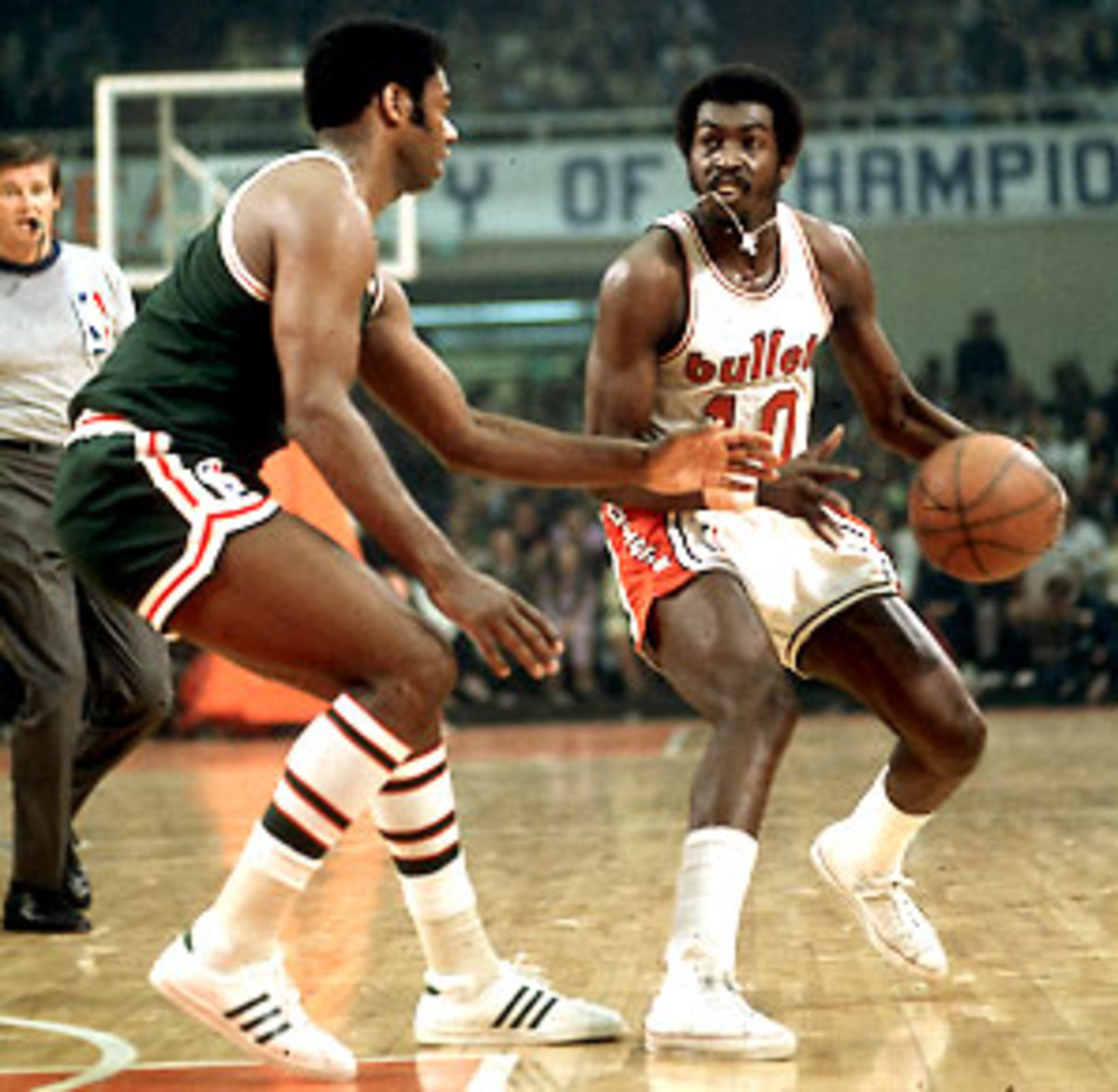A father and son form everlasting bond, one bus ride at a time
On Christmas Night in 1966, my father and I found refuge in the back of a bus bound for Baltimore. The Baltimore Bullets of the NBA had a deal back then, to lure fans from neighboring D.C.: Five bucks got you a bus ticket and a ballgame.
The Greyhound picked us up in the Washington suburb of Langley Park and left us at the Baltimore Civic Center. The trip took an hour. You can learn some things in an hour.
I was 8 years old, my dad was 34. My mother would have been 33, if she hadn't died. When you're 8, life is full of questions. You want to know how Earl "The Pearl'' Monroe can dribble the ball behind his back like that. You want to know where he got those orange wristbands and why Gus Johnson answered to "Honeycomb'' and if Wilt Chamberlain was the tallest man in the world and if you can have large popcorn and when your mother is coming back. You'd like to know that.
"Who's your favorite player?'' my dad asked. And, by the way, "Mom's not coming back.''
Sunday is Father's Day. For those of us lucky enough to have had a father who was perpetually present and accounted for, it is the best, most wistful of days. Who we are and how we got here is a story of our fathers. Your memories could be of ballgames or band concerts. Mine are of bus rides to Baltimore.
"Why did mom die, Dad?'' I asked.
A father's biggest job is to be around, which is harder than it sounds. He doesn't have to be the strongest guy or the smartest. He doesn't have to excel in sports or coach your team. He doesn't have to the person you play catch with or the man who shovels the driveway around the basketball hoop on Saturday morning so you can practice your jump shot when you wake up.
He just has to be around. For lots of us, "fathers playing catch with sons'' is metaphorical.
My dad disliked baseball, but he knew I didn't. We went to ballgames. We lived in an apartment. There was no basketball hoop outside, so my dad made one for me inside. He sawed a piece of plywood into a three-foot square. He took a pair of tinsnips and cut off the top of a coffee can: a rim. He bought some twine and spun it into knots for a net. He got some picture wire and hung the whole beautiful mess from a closet door.
Kevin Loughery and Wes Unseld were never better than when they were me, pretending five-on-five in my bedroom.
All my father and I had was each other, so all we did together was everything. We hiked the Blue Ridge Mountains, we swam the Atlantic off Cape Cod. We had season tickets to the Washington Redskins. For two years, our world was a tightly informed circle. Mine was his; his was mine.
My dad was never so taken with his own life that he did not yield to mine. This is what fathers do. The essence of being a dad is being there. Everything else is a gift, the T-shirt with the magazine subscription.
"You mean mom's not coming back, ever?''
It takes guts to be around. Maybe that's why so many fathers aren't. I've written for 30 years about pro athletes. Show me an athlete who is deep-down sure of himself, who is a man in all respects and I'll bet you that athlete had a full-time father. You don't have to be around a locker room long to hear tales of absent fathers, fathers who left, fathers who come around now, smelling the money and fame. Fathers their sons have never known.
An irony of pro sports is that the "men'' we idolized as kids -- and our kids idolize today -- are sometimes sorely lacking in the defining qualities of manhood. They didn't have fathers around to teach them. They didn't have the most important role model of all.
I'm a father now. My kids are 23 and 20. I spent 20 Father's Days elsewhere, because the U.S. Open always ends that Sunday. My daughter played soccer on Sundays in the fall. I saw her play exactly once, the Sunday after 9/11, when the NFL canceled its games. Her birthday is Oct. 17. I missed the first eight, covering the baseball postseason. I am not the father my father was. Thankfully, I haven't had to be. My kids have never needed a ride in a dark bus to explain things.
In November 1966, my mother took her own life. We cried, we grieved, we laid her to rest. After a while, we got on the bus. Life doesn't wait for you to live it. The bus was always on time.
"Your mom's happy now,'' is what I recall my dad saying to me, and that was good enough.
He remarried two years later and got the happiness he deserved. We don't talk much about the bus rides now. Every so often, an old Bullet will make the news. Gus "Honeycomb'' Johnson died of cancer several years ago. We talked about that.
"First guy I ever saw shatter a backboard,'' I said.
"Yes,'' my dad said.
"Remember the bus rides, Dad?''
"That was a long time ago,'' he said.
He remembered, though. Fathers playing catch with sons. Explaining the world to an 8-year-old, on a bus, one ride at a time.






